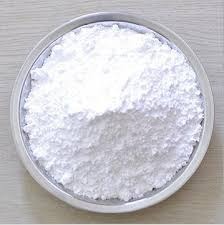IUPAC Name
Sodium 2-chloroacetate
Cas Number
3926-62-3
HS Code
29154000
Formula
C2H2ClNaO2
Industry
Soap and Detergents
Appearance
White Powder
Common Names
Sodium monochloroacetate, Monoxone, Sodium chloroacetate
Packaging
25/50 kg Net HDPE Bags with Liner inside, 500/1050 kg PP FIBC Jumbo Bag. 22.00 MTS
Brief overview
Sodium Monochloroacetate is the sodium salt of chloroacetic acid. It is considered to be hygroscopic and thus must be handled with extreme care. It is a white-colored free-flowing fine powder with a slightly pungent odor. It is readily soluble in water.
Manufacturing Process
Sodium Monochloroacetate is an important industrial product, particularly for use as an intermediate reactant in the synthesis of many pharmaceutical and agrochemical products. Many processes have been developed to prepare sodium monochloroacetate, which are essentially based on the neutralization of monochloroacetic acid with bases such as sodium hydroxide and sodium carbonate. The process involves the neutralizing the molten monochloroacetic acid with concentrated caustic soda (50-55%), sodium carbonate in the form of a suspension or concentrated solution or in the form of a powder in a spray dryer. This process in which sodium carbonate is introduced together with hot air at 100 ℃ while molten monochloroacetic acid is sprayed at 80 ℃. In general, all these processes are carried out either under anhydrous conditions or with rapid removal of water (spray drying), which gives the sodium monochloroacetate in the form of a fine powder having a tendency to agglomerate and thus to flow poorly during pneumatic conveying or decantation.
Sodium Monochloroacetate is used in the manufacture of carboxymethylcellulose and as starch to be added as a thickening agent in detergents, paper manufacturing, food, and in pharma products. It is used in the manufacture of insecticides and herbicides like 2,4-D, MCPA, dimethoates, etc. UV light stabilizers in PVS, it is added for the manufacture of thioglycolic acid, and its ester is used in cosmetics. Other applications – Vitamins, Glycine, Malonates, and synthetic caffeine.
